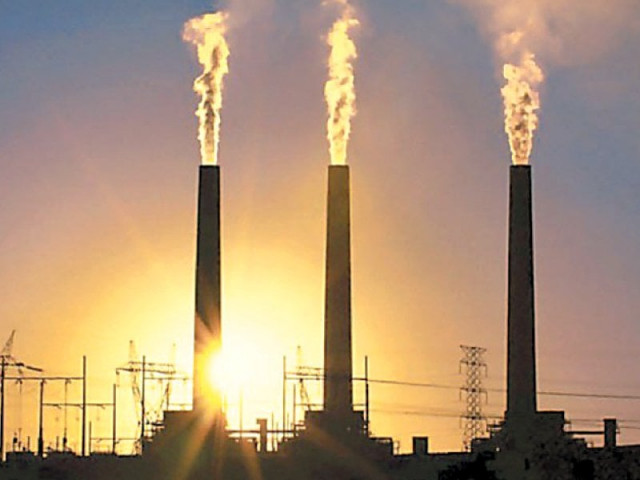Gas supply to CNG stations considered wastage
Inefficient captive power plants may also face disconnection.

EPZA Chairman Saadat Cheema said the power supply arrangement
would be a major initiative in the area of alternative energy. PHOTO: FILE
The new government may place a ban on the consumption of compressed natural gas, which is considered wastage of gas, in a bid to divert the key resource to power plants to ease energy shortages.
According to sources, Federal Petroleum and Natural Resources Minister Shahid Khaqan Abbasi, in a meeting on Saturday, said he considered CNG filling stations the most inefficient way of consuming gas and termed it ‘wastage’.
Captive power plants, which were getting 450 million cubic feet per day (mmcfd) of gas, were also inefficient and could face disconnection of gas supply, sources quoted meeting participants as saying.
The National Accountability Bureau has already expressed its view that gas supply to inefficient captive power plants at the cost of efficient power plants is a criminal act.
In the meeting, Abbasi announced that the system of giving gas connections on priority would come to an end and connections would be given on merit. Gas would be provided to the consumers which have valid gas supply agreements, he said.

According to a statement issued here, the minister stressed that natural resources would be utilised in the most efficient manner to cope with the energy crisis in the country. After domestic and commercial consumers of gas, power producers would be the focus of attention, he said.
“Power generation is the most efficient use of this scarce natural resource,” he said.
Officers of the petroleum ministry will come up with objective and well thought out work plans and proposals with complete information and data so that these could be made part of policymaking.
The minister was briefed about the working of the ministry, organisation, natural resources and their allocation to various sectors.
Giving a detailed briefing, the petroleum secretary expressed concern over the losses caused by gas theft and leakage, called unaccounted-for-gas, and said the issue should be addressed at the earliest.
He underlined the need for consistency of policies as frequent policy shifts harmed the interests of investors and without investment no enterprise could survive.
“We will work in close coordination with the Ministry of Finance and Ministry of Water and Power to resolve the power crisis, which is the top most priority of our government,” he said.
According to sources, Sui Southern Gas Company (SSGC) officers, who were present in the meeting, said unaccounted-for-gas level would drop to 8.5% this year compared to 10.8% last year.
They argued that Ogra was treating gas theft by unregistered consumers as unaccounted, which was unfair. Gas sales in Balochistan constituted 5% of total gas sales, but consumers there did not pay their bills, which contributed 3% to the UFG.
Published in The Express Tribune, June 9th, 2013.
Like Business on Facebook to stay informed and join in the conversation.



















COMMENTS
Comments are moderated and generally will be posted if they are on-topic and not abusive.
For more information, please see our Comments FAQ